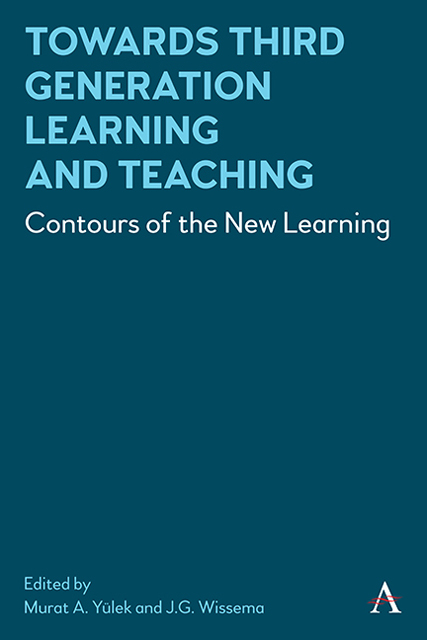Chapter 1 - Introduction—Three Generations of Learning
Published online by Cambridge University Press: 10 January 2023
Summary
The Learning Challenge
“We stand on the brink of a technological revolution that will fundamentally alter the way we live, work and relate to one another. In its scale, the transformation will be unlike anything humankind has experienced before. We do not yet know just how it will unfold, but one thing is clear: the response to it must be integrated and comprehensive, involving all stakeholders of the global polity, from the public and private sectors to academia and civil society.” This quote, from Professor Klaus Schwab, founder and executive chair of World Economic Forum, continues to list some of the emerging technologies: “artificial intelligence, robotics, the Internet of Things, autonomous vehicles, 3-D printing, nanotechnology, biotechnology, materials science, energy storage and quantum computing” (Schwab, 2018). He could have added neuroscience, genetic engineering, blockchain technology and a host of other new technologies that have digitization as a common base. Further in his article he writes: “The demand for highly skilled workers has increased while the market for workers with less education and lower skills has decreased. The result is a job market with a strong demand at the high and low ends, but a hollowing out in the middle.”
Hyperbole? Well, nobody doubts the impact of the technologies now being developed. Just about every day we are confronted with estimates of the alarming number of jobs that are going to be destroyed, making you wonder whether anyone will have a job at all in the not-too-distant future. Yet, the passage quoted above could have been written equally well in say 1880, when electrical power, (international) railways and motorized shipping, telegraph, telephone, photography, cars, motorized farming and, eventually, aviation were entering into the lives of our great-grandparents. They certainly “involved all stakeholders of the global polity, from the public and private sectors to academia and civil society” (op cit). Closer in time, many of us will remember the massive layoffs of administrative staff when computers became a commodity. Despite these enormous shifts, unemployment levels have remained low and not only because we work (slightly) less. How come? The answer is education. Each wave of technological change calls for workers with new skills, lured to the new professions by the early monumental salaries; think of the salaries of IT staff at the end of the previous century.
- Type
- Chapter
- Information
- Towards Third Generation Learning and TeachingContours of the New Learning, pp. 3 - 14Publisher: Anthem PressPrint publication year: 2022



